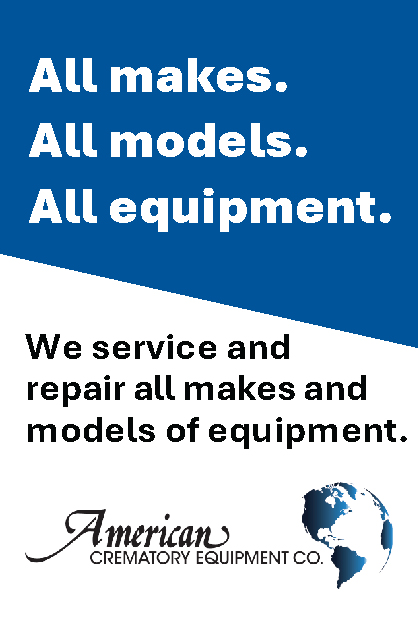Published in the July 2020 Issue of Memento Mori
By Tanya Scotece, PhD, LFD
After having spent nearly 13 years in the funeral profession as a licensed funeral director/embalmer and watching interns come and go, I transitioned to education and now have had the opportunity to see the other side of the coin. During my two years at Miami Dade College as professor in the Funeral Service Education Program, I have learned what happens on the academic side and have gained an appreciation for what students must endure in order to become prepared for internships as funeral directors.
Partnerships
In my work as liaison between students and the funeral homes where they are seeking internships, I recognize that a deeper cooperation between funeral homes and mortuary colleges would be mutually beneficial. If funeral homes were more active with the colleges in their states as far as explaining to students the expectations, the professionalism, and the overall view of a career as funeral director/embalmer, students could have a more realistic view of what such a career entails.
I believe all funeral homes interested in providing internships for students would do the field a tremendous service by having a presence at the school perhaps once every semester. Though I am aware that some funeral homes do have “interview day” for potential interns, I believe consistency is the key.
With a consistent relationship and interaction between the school and the funeral home, students will maintain a top-of-mind awareness at all times during their academic path about the services and requirements of funeral homes that they are looking to join.
Observations
Some mortuary programs require students to do observations. Having funeral homes set up, in advance, observation programs for potential interns would be very valuable for both student and hosting funeral home.
For example, for their Funeral Directing class, students are required to have at least five observations of graveside services, cremation, visitation, church service, and whatever other type of services that the funeral homes offer. A funeral home observation program set up in advance would enable students to better understand textbook explanations in each category by seeing each of these services first-hand and watching how they are handled in “real life.”
A View from Both Angles
Having stood on both sides of the bridge, I now feel as though I can sit on top of the bridge and help facilitate a better relationship between funeral homes and mortuary schools. I recommend having a form in place on the funeral home side containing guidelines so that a well-prepared student can come in, observe, and be ready to go without much paperwork. Guidelines would include a confidentiality agreement, restrictions on photographs, what constitutes professionalism, proper attire, dates and times expected, etc.
In closing, it is my belief that funeral homes do not recognize the impact they have on students interested in funeral service careers. It would behoove funeral homes to make a concerted effort to connect with college funeral service program professors and arrange to engage with students, either in the actual classroom or virtually, and open up their funeral homes so that students can see firsthand what it is like to be a Funeral Director/Embalmer at their facilities.
Tanya Scotece, PhD, LFD, tscotece@mdc.edu, is a professor in the Funeral Service Education program at Miami Dade College. After nearly 20 years, she decided to change careers and attended mortuary school, graduating in 2005. She then obtained a bachelor’s degree in criminal justice and a master’s in criminal forensics followed by a PhD in adult education from the University of South Florida. Tanya is a licensed funeral director and embalmer, a licensed pre-need insurance agent, and a trained funeral celebrant through the ICCFA University College of 21st Century Funeral Services.
